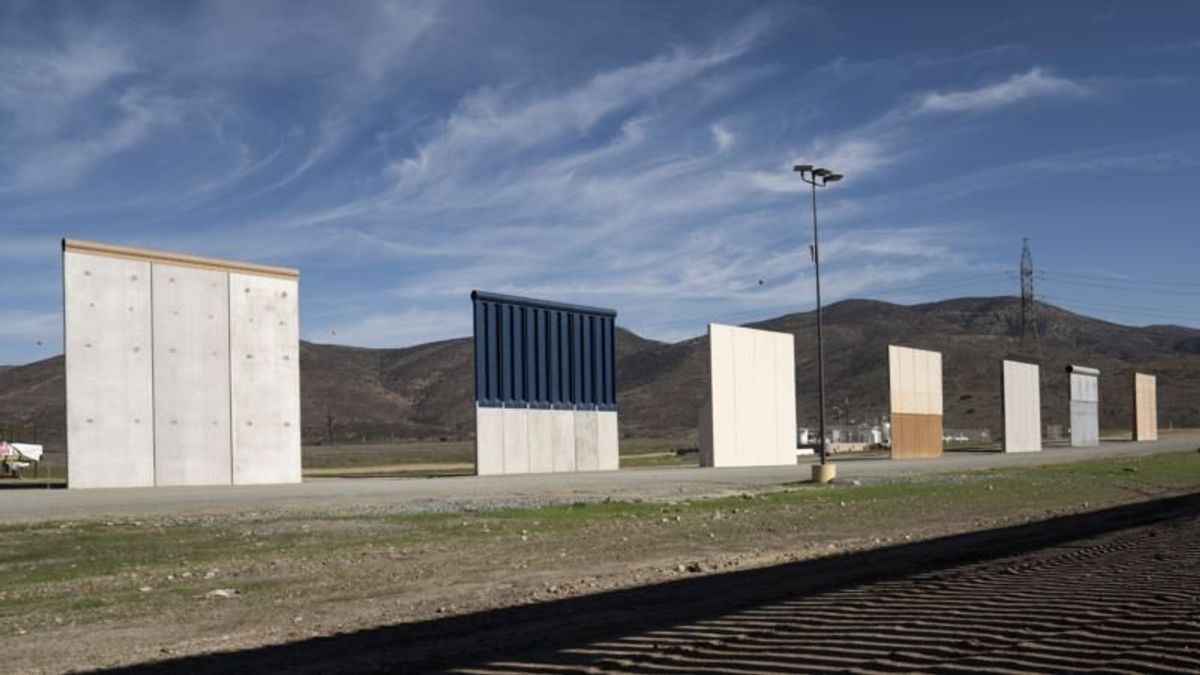
AP Fact Check: Trump’s Skewed Theory of Paying for Wall
AP Fact Check: Trump's Skewed Theory of Paying for Wall

WASHINGTON —
President Donald Trump is, at once, demanding billions of dollars from the U.S. Treasury for a border wall and insisting the wall won't really cost America anything.
As he's done before, Trump argued Wednesday that Mexico is footing the bill, thanks to a revised trade agreement. That's not true. If the wall is to be built, the money will need to come from Washington's coffers and be approved by Congress. There is no mechanism in the trade agreement or anywhere else for Mexico to pay back the U.S. or for the money to be refunded to the Treasury.
Trump: In a tweet, the president said that "Mexico is paying for the wall through the new USMCA trade deal. Much of the wall has already been fully renovated or built." He also said that the $5 billion-plus for the wall that was in bill passed by the previous House in December was "very little in comparison to the benefits of national security."
The facts: Mexico isn't paying. It's also not true that there's been much construction beyond fencing erected during previous administrations; some renovation of the existing barrier has been achieved.
Trump is arguing, in essence, that the updated trade pact with Mexico and Canada, known as the U.S.-Mexico-Canada Trade Agreement, will yield economic benefits to the U.S. that, years from now, will cover the unrelated costs of the wall today. That assertion doesn't hold water even with those who support his push for a wall. He went further at a Cabinet meeting Wednesday, contending the wall will pay for itself on a "monthly basis.''

The new trade deal won't change that much from the previous North American Free Trade Agreement. The three countries would continue trading in an environment of mainly low or no tariffs, with certain improvements for all three partners from the terms of NAFTA. Moreover, the new deal isn't in effect. It's awaiting ratification from legislative bodies in each country, and that is not assured.
There is no credible way for Trump to forecast additional growth covering costs that are being charged to U.S. taxpayers if the wall is built. Trade balances depend on too many factors — consumer tastes, exchange rates, overall economic performance and the choices of thousands of companies, for example — and some are well outside any government's control. Trump specifically promised in his 2016 campaign that Mexico would pay for the wall. It is not doing so.
Deficit isn't a payment
Trump's case is also built on a mischaracterization of trade balances. Unlike economists and governments, he considers a trade deficit to be a payment to the exporting country. By that argument, if a trade deficit shrinks, the U.S. is saving money. But that's not how trade works. Consumers create a trade deficit by buying products made abroad. They get value for their purchase _ the products — and are not giving money away.
Trump's claim that much of the "wall has already been fully renovated or built'' is only supported when counting work done by past administrations and ignoring the fact that fences are not the towering walls he promised. The 2006 Secure Fence Act has resulted in about 650 miles or nearly 1,050 kilometers of border barrier. Money approved by Congress in March 2018 is to pay for 84 miles (135 km), but that work is not done.
Trump's point that the national security benefits would outweigh the economic cost is a legitimate one to debate. But the notion that U.S. taxpayers would not be covering the cost is baseless.
Tags
US Politics Israeli Settlement Activity Appears to Surge in Trump EraNext PostWarren Plans Iowa Trip in Another Step Toward 2020 Campaign
Israeli Settlement Activity Appears to Surge in Trump EraNext PostWarren Plans Iowa Trip in Another Step Toward 2020 Campaign





